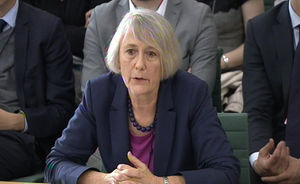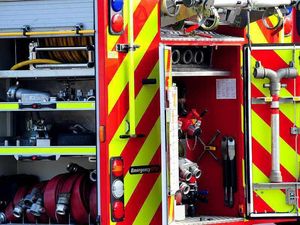Complaints against West Midlands Police fall by 24%
The number of complaints logged against West Midlands Police has fallen by 24 per cent in 12 months, new figures reveal.

Statistics released by the Independent Police Complaints Commission (IPCC) show there were 882 complaints received in 2016/17, down from 1,168 during the previous financial year.
Of the complaints finalised in 2016/17, 72 per cent of cases were investigated by the force and 16 per cent were dealt with through local resolution.
The latter method means dealing with complaints against the police at a local level – for example, through the involvement of an inspector at a police station and might involve resolving the complaint over the counter or by telephone.
Staffordshire Police, however, saw a very slight increase in the number of complaints logged with the figure going up from 410 in 2015/16 to 421. This is a three per cent rise.
West Mercia Police saw a 44 per cent increase with the number rising from 509 to 733.
The figures relate to reports made about the alleged conduct of police personnel including officers and civilian staff, as well as grievances raised about how a force is being run.
Nationally, the figures show that 34,103 grievances were received by forces across the country in 2016/17, an almost identical figure to last year, when 34,247 were recorded.
There will be significant changes to the police complaints system in 2018, including a greater role for police and crime commissioners, who will decide on appeals that do not go to the IPCC.
The watchdog has repeated its call for the system to be simplified and for a consistent approach to complaints and complainants across forces.
Chairman Dame Anne Owers said: “The public need to have a high level of confidence in the police complaints system. If they complain about their local police force they should be assured that it will be dealt with robustly and fairly.
“The current system is extremely complex and bureaucratic and this has led to some of the inconsistencies we have recorded year on year. It is also not sufficiently independent, since some dissatisfied complainants can only appeal to the force that rejected their complaint in the first place.
“While some local variation is unavoidable, it is clear that some forces need to look closely at their own performance and approach, where it is clearly at odds with the norm. It is welcome that some forces have done this during last year, sometimes with the assistance of our own oversight team.
“The new system will be simpler and more flexible, and will also provide an independent appeal right for everyone, either to the IPCC or to a Police and Crime Commissioner. This is welcome, but we will still need to ensure that complainants throughout the country can be assured that their complaints will be handled appropriately and thoroughly.
“We look forward to working with police and crime commissioners as they take on greater responsibility for complaints in their areas, to share knowledge and ensure effective and consistent oversight of the police complaints system.”





